- Apply
- Visit
- Request Info
- Give
Supporting Social & Emotional Development
Scroll

Adults can help children develop the skills and confidence they will need to be successful throughout their lives in a variety of ways, including:
- Building strong bonds with young children
- Providing predictable schedules and routines
- Helping children to identify and communicate their feelings
- Supporting them in developing and navigating friendships
The videos and resources below provide ideas and guidance in supporting children's healthy social and emotional development.
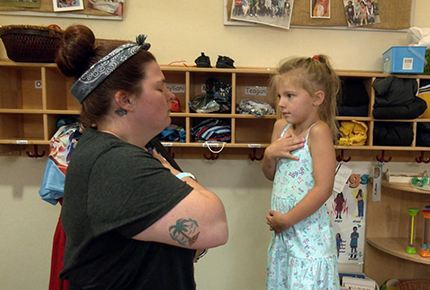 Mindfulness with Young Children (9:35, 2023)
Mindfulness with Young Children (9:35, 2023)
Yoga, meditation, and other mindfulness practices can have powerful effects on children's ability to self-regulate, interact with their peers, and attend to school. In this video, mindfulness expert Dr. Martha Goldstein-Schultz, preschool teachers Emily Grogan and Amy Figueroa, and 3rd grade teacher Erin Trudeau describe how to build simple mindfulness practices into the school day.
Watch video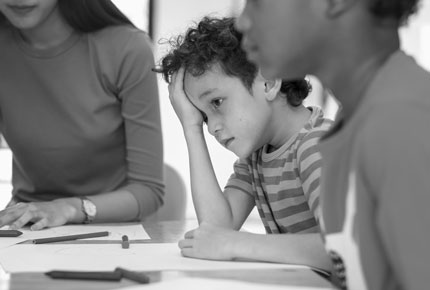 Supporting Children Affected by Trauma (Series, 2023)
Supporting Children Affected by Trauma (Series, 2023)
This series is aimed at providing basic awareness to early childhood educators about how experiences with trauma may manifest in the classroom, how educators might respond in the moment to trauma-related behaviors, and how to set up the classroom environment to support children with a variety of needs and build the resilience of all children. The three videos include:
- Understanding the Potential Effects of Trauma on Young Children (7:51)
- Creating Classroom Environments that Build Resilience (6:26)
- Responding to Trauma-Related Behaviors in Early Childhood Settings (8:25)
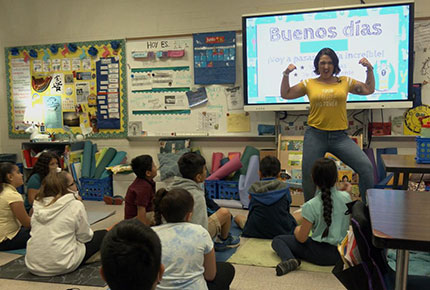 Using Morning Affirmations to Build Classroom Community (1:57, 2022)
Using Morning Affirmations to Build Classroom Community (1:57, 2022)
In Erin Trudeau's bilingual 3rd grade classroom, students start each day repeating affirmations. Señora Trudeau describes how the practice has impacted students' self-talk and interactions with their peers, and the positive impact it has had on the sense of community in her classroom.
Watch video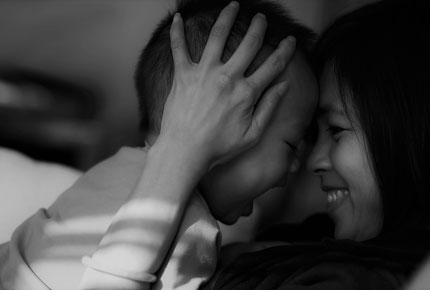 What is Infant Mental Health? (1:55, 2018)
What is Infant Mental Health? (1:55, 2018)
Infant mental health is defined as a young child’s capacity to regulate and express emotions, form relationships, and explore the environment and learn--capacities that young children develop based on their environment and the relationships they have with their primary caregivers. In this video, infant mental health specialists and other experts provide a brief overview of the meaning of the term "Infant mental health."
Watch video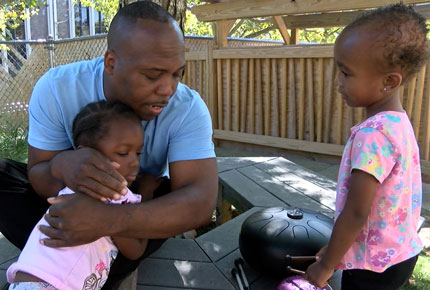 Helping Children Develop Empathy and a Sense of Justice (3:22, 2021)
Helping Children Develop Empathy and a Sense of Justice (3:22, 2021)
Vivian Paley explains the importance of supporting the development of children’s empathy and sense of justice from their earliest days, and describes how teachers can use storytelling as a tool for building compassion and fairness.
See more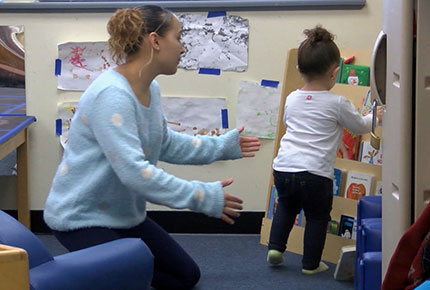 Supportive Environments: Setting Rules and Expectations (6:31, 2017)
Supportive Environments: Setting Rules and Expectations (6:31, 2017)
In ensuring that a learning environment supports children’s social and emotional well-being, adults need to make sure that children know what to expect and understand what is expected of them. In this video, teachers, family child care providers, and experts discuss how to determine developmentally appropriate rules for children, and share strategies they use for communicating rules and expectations to children. Strategies for involving young children in creating classroom rules are also shared.
See more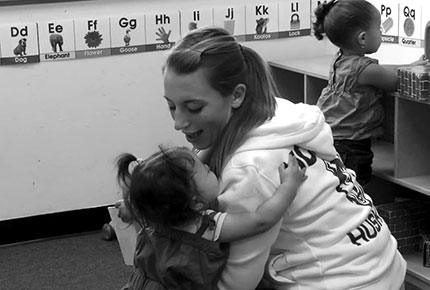 Building Positive Relationships with Young Children (9:20, 2016)
Building Positive Relationships with Young Children (9:20, 2016)
Having strong, positive relationships with adults is critical for children's social and emotional development, and sets the stage for all future learning. In this video, teachers, family child care providers, and other experts discuss how adult relationships with children impact children’s development, behavior, and readiness to learn. Strategies for building strong relationships with infants, toddlers, preschoolers, and Kindergartners are also shared.
See more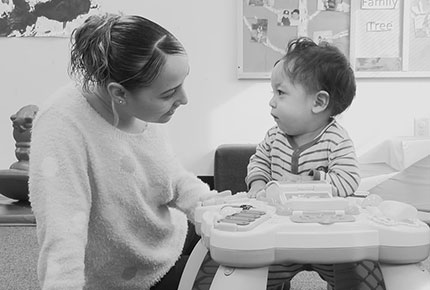 Understanding Challenging Behavior in Young Children (16:23, 2015)
Understanding Challenging Behavior in Young Children (16:23, 2015)
When a provider has a concern about a child’s behavior, it is important to consider what may be influencing the behavior. In this video, early childhood teachers, home child care providers, and experts discuss some of the possible influences of children’s behavior and how to respond objectively.
See more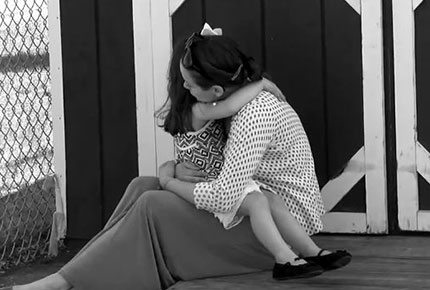 Reflecting on Our Reactions and Responses to Children's Behavior (6:48, 2015)
Reflecting on Our Reactions and Responses to Children's Behavior (6:48, 2015)
In this video, early childhood experts and teachers reflect on the importance of gauging one’s own personal feelings before reacting to children’s challenging behavior to ensure that responses are appropriate.
See more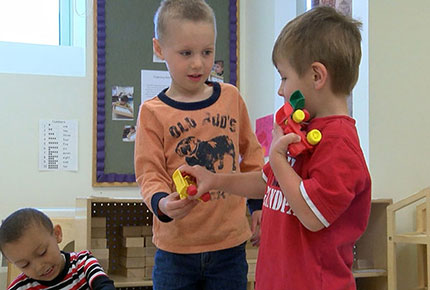 Building Community in the Preschool Classroom (2:43, 2016)
Building Community in the Preschool Classroom (2:43, 2016)
In this video from the "Reflection from the Field" series, Head Start teacher Ashley Anderson describes some of the strategies she uses to encourage children to support and learn from their peers.
See more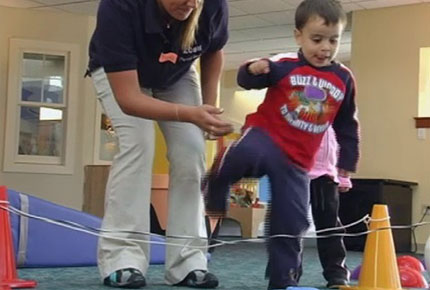 Nurturing Preschool Children's Emotional Health Through Active Play (3:56, 2010)
Nurturing Preschool Children's Emotional Health Through Active Play (3:56, 2010)
Part of the "Supporting Children's Physical and Outdoor Play" series, this video explores how active play can nurture a child's emotional health. During active play, children form relationships with their peers, gain confidence in their abilities, learn to express emotions, and develop the “mastery motivation” that will provide them with the internal desire to master new skills. Adults can support this by providing fun physical challenges that are appropriate for children’s abilities, by giving children choices over how they move and play, and by providing opportunities for children to practice self-regulation through physical games.
See more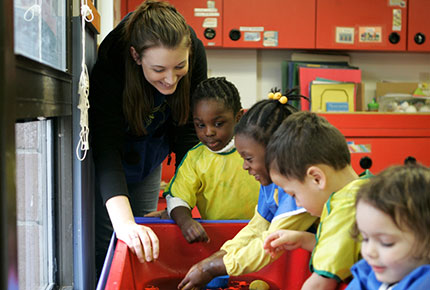 Guiding Young Children's Behavior (Series, 2007)
Guiding Young Children's Behavior (Series, 2007)
A series of videos with tools and strategies for guiding preschool children’s behavior in positive ways. The roughly two hours of videos and reflective questions cover the following topics:
- Fostering trusting relationships
- Arranging the classroom
- Selecting classroom materials and planning the schedule
- Establishing classroom rules
- Responding to behavior problems and resolving conflicts
- Helping children identify and express emotions
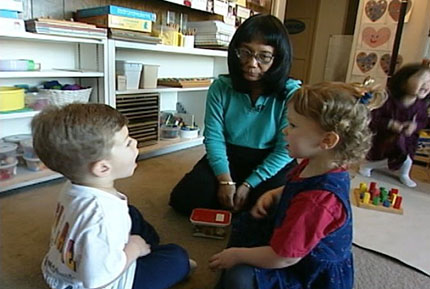 Teaching Preschool Children Conflict Resolution Skills (1:56, 2007)
Teaching Preschool Children Conflict Resolution Skills (1:56, 2007)
Dr. Carlota Schechter explains how conflicts can be made into learning opportunities so that children learn the skills necessary to solve conflicts independently.
See more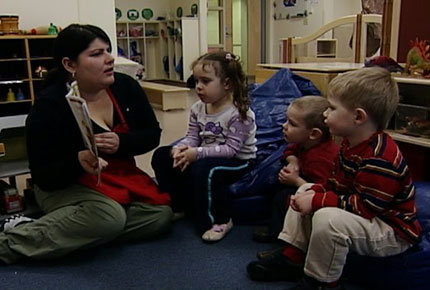 Using Literature to Help Children Manage Strong Feelings (2:58, 2007)
Using Literature to Help Children Manage Strong Feelings (2:58, 2007)
Dr. Theresa Bouley discusses how teachers can carefully select children’s literature that helps children identify and express their emotions, and how teachers can use literature as a springboard for discussing ways to manage strong feelings.
See more
